News & Updates

April 10, 2025
Incorporating your business is a critical step in turning your entrepreneurial vision into reality. While it may seem straightforward, the process involves numerous legal and administrative tasks that can be overwhelming without the right guidance. At Christopher G. Hook, we help business owners navigate incorporation in Los Angeles with ease. Here’s a step-by-step guide. 1. Choose the Right Structure The choice between an LLC, S-Corp, or C-Corp depends on factors like liability protection and tax implications. We’ll help you understand the differences and select the best fit for your business. 2. File Articles of Incorporation This document formally registers your business with the state. Filing accurately and promptly is essential to avoid delays. 3. Draft Corporate Bylaws Bylaws set the rules for how your business will operate. We ensure your bylaws are clear and legally sound. 4. Secure an EIN An Employer Identification Number (EIN) is required for tax filing and banking purposes. We’ll guide you through the application process. 5. Comply with Ongoing Requirements Incorporating is just the beginning. We provide ongoing support to ensure your business remains compliant with annual filings and other regulations. With the right legal support, incorporating your business doesn’t have to be daunting. Contact Christopher G. Hook today to get started on the path to success.

March 19, 2025
Legal disputes are stressful, and navigating them alone can be overwhelming. Whether it’s a contract disagreement, employment issue, or personal injury case, partnering with a skilled civil litigation law firm can make all the difference. At Christopher G. Hook, we’re dedicated to providing expert representation for clients across California. Here’s why hiring a civil litigation firm is a wise choice. 1. Expert Legal Strategy Civil litigation requires a strategic approach tailored to the unique circumstances of each case. Our team leverages years of experience to craft solutions that align with your goals and maximize your chances of success. 2. Resources at Your Disposal A law firm offers more than just legal advice. From expert witnesses to state-of-the-art research tools, Christopher G. Hook provides comprehensive support to build a strong case on your behalf. 3. Peace of Mind Facing a lawsuit can be emotionally and financially draining. We handle the legal complexities so you can focus on your life or business with confidence. 4. A Proven Track Record Results matter. Our clients trust us to deliver favorable outcomes, whether through negotiation, mediation, or courtroom advocacy. Don’t face legal challenges alone. Reach out to Christopher G. Hook today for dedicated, results-driven representation.

February 11, 2025
Estate planning is more than just a legal process—it’s a way to secure your legacy and protect your loved ones. Unfortunately, many people put off estate planning, believing it’s only for the wealthy. At Christopher G. Hook, we’re committed to making estate planning accessible to everyone in Los Angeles. Here’s a closer look at why estate planning is essential and how to get started. 1. Understanding Estate Planning Estate planning involves creating legal documents like wills, trusts, and powers of attorney to manage your assets and healthcare decisions. It ensures your wishes are carried out and protects your family from unnecessary legal and financial complications. 2. Who Needs an Estate Plan? Everyone benefits from estate planning, regardless of the size of their estate. Whether you own a home, have children, or want to leave a charitable legacy, an estate plan ensures your assets are distributed according to your wishes. 3. Common Estate Planning Tools Wills: Specify how your assets will be distributed and name guardians for minor children. Trusts: Help avoid probate and provide ongoing financial management. Healthcare Directives: Outline your medical preferences in case you’re unable to communicate. 4. Avoiding Mistakes Many people make the mistake of failing to update their estate plans after major life changes like marriage or the birth of a child. Regular reviews with an experienced attorney can prevent these oversights. Estate planning doesn’t have to be intimidating. At Christopher G. Hook, we’re here to guide you every step of the way. Schedule a consultation today and take the first step toward peace of mind.

January 8, 2025
Starting a business is a thrilling journey, but it’s also one fraught with legal hurdles. While it may be tempting to handle the process on your own, hiring a business formation lawyer can set you up for long-term success. At Christopher G. Hook, we specialize in guiding entrepreneurs through the intricacies of business formation in Los Angeles. Here are five compelling reasons to work with us. 1. Selecting the Right Business Structure The structure you choose—whether it’s an LLC, corporation, or partnership—affects your taxes, liability, and daily operations. Our team helps you weigh the pros and cons of each option to find the best fit for your goals. 2. Ensuring Legal Compliance Los Angeles has its own regulations for businesses, from zoning laws to licensing requirements. We’ll help you navigate these rules to ensure your business is legally compliant from day one. 3. Crafting Solid Contracts Contracts form the backbone of any successful business. We draft and review essential agreements, such as partnership agreements and client contracts, to protect your interests and minimize risks. 4. Avoiding Costly Mistakes Filing errors or incomplete paperwork can delay your business launch and incur penalties. By working with Christopher G. Hook, you can avoid these pitfalls and save valuable time and resources. 5. Building a Long-Term Legal Partnership Your legal needs don’t end with formation. As your business grows, having a trusted advisor ensures you’re prepared for challenges like hiring employees or resolving disputes. Starting a business is a significant milestone. Let Christopher G. Hook guide you through the process with expertise and care. Contact us today to schedule your consultation.

December 17, 2024
When faced with legal disputes, the outcome often hinges on the expertise of your attorney. Choosing the right civil litigation attorney in Los Angeles can make all the difference in achieving a favorable resolution. With so many options available, finding a lawyer who aligns with your needs can feel daunting. At Christopher G. Hook, we understand the complexities of legal disputes and are here to help. Here’s what to consider when making your choice. 1. Experience in Civil Litigation Look for an attorney with a proven track record of success in handling cases similar to yours. Civil litigation covers a broad spectrum, from business disputes to personal injury claims. An experienced attorney like Christopher G. Hook knows how to navigate these complexities and tailor strategies to achieve the best results. 2. Knowledge of Local Laws and Courts Los Angeles has its own set of legal nuances. An attorney familiar with the local courts and their procedures can provide a strategic advantage, ensuring your case moves smoothly through the system. 3. Communication and Availability A good attorney prioritizes clear and consistent communication. At Christopher G. Hook, we keep you informed every step of the way, answering your questions promptly and ensuring you understand your options. 4. Client-Centered Approach Your attorney should be genuinely invested in your success. Reading client testimonials and reviews can give you insight into the attorney’s dedication. At Christopher G. Hook, our commitment to personalized service is reflected in the satisfaction of our clients. 5. Transparent Fees Legal disputes can be costly, so it’s important to choose an attorney who is upfront about their fees. Transparency ensures you’re not blindsided by unexpected expenses. Choosing the right attorney is a critical step in protecting your rights and interests. Contact Christopher G. Hook today for a consultation and see how we can guide you through your legal challenges with confidence.

July 8, 2024
Experiencing a car accident or injury can be overwhelming and disorienting. Knowing the right steps to take immediately after the incident can help ensure your safety, preserve crucial evidence, and protect your legal rights. Here are essential actions to follow: 1. Ensure Safety Your first priority should be to ensure your safety and the safety of others involved. If possible, move to a safe location away from traffic and potential hazards. Turn on your hazard lights to alert other drivers. 2. Call Police/Emergency Services Contact 911 to report the accident and request police and medical assistance if needed. An official police report is invaluable for documenting the incident and is often required for insurance claims. 3. Preserve Evidence Preserve the scene as best as you can. Avoid moving your vehicle unless it is necessary for safety. Do not discard any potential evidence that might be relevant to the incident. 4. Take Pictures Use your phone to take photographs of the accident scene, including all vehicles involved, any visible injuries, road conditions, and any other relevant details. These images can serve as crucial evidence later. 5. Treat Your Injuries Immediately Seek medical attention right away, even if you think your injuries are minor. Adrenaline can mask pain, and some injuries may not be immediately apparent. Follow all medical advice and attend all follow-up appointments. 6. Contact Us Promptly Reach out to the Law Offices of Christopher G. Hook as soon as possible. We can provide guidance on how to proceed, help preserve evidence, and ensure your legal rights are protected. Early legal advice can significantly impact the outcome of your case. Accidents are stressful and chaotic, but following these steps can help manage the aftermath effectively. Prioritize your health and safety, document everything meticulously, and seek professional legal assistance to navigate the complexities that follow. Schedule a Consultation For expert legal guidance and to ensure your rights are fully protected, schedule a consultation with the Law Offices of Christopher G. Hook today.

By Christopher G. Hook
•
April 12, 2024
Civil litigation encompasses a wide range of disputes including contract violations, property disputes, and personal injury claims, among others. Whether you are considering filing a lawsuit or you find yourself the defendant in one, understanding the process can significantly impact the outcome. This comprehensive guide will delve into what civil litigation involves, the stages of a lawsuit, and how to navigate the system effectively. Understanding Civil Litigation Civil litigation is the process through which private disputes are resolved in court. Unlike criminal cases, which involve an action that is considered harmful to society as a whole, civil cases revolve around personal disputes between entities or individuals that require restitution or compensation. The Phases of a Civil Case Consultation and Case Evaluation: Before filing a lawsuit, it’s essential to consult with a qualified attorney who can evaluate the merits of your case. This step involves a detailed discussion of the facts, review of relevant documents, and an assessment of the potential outcomes. Filing of Pleadings: The actual litigation process begins with the filing of a complaint or a petition, followed by the defendant's response. These documents outline each party’s perspective on the dispute and the remedies sought. Discovery Phase: Perhaps the most critical, the discovery phase allows both sides to exchange information related to the case through depositions, requests for documents, and interrogatories. The aim is to gather sufficient evidence to build a strong case. Pre-Trial Motions and Hearings: Parties may file motions to resolve or narrow the issues before trial. These might include motions to dismiss the case or compel evidence, and are typically argued in pre-trial hearings. Trial: If the case is not settled during the earlier stages, it will proceed to trial. Both parties will present their arguments, submit evidence, and call witnesses. A judge (or jury in some cases) will make a final decision based on the information presented. Appeal Process: If one of the parties is dissatisfied with the trial outcome, they may file an appeal. However, an appeal is not a re-trial but a review of the legal basis of the first trial’s decision. Tips for Navigating Civil Litigation Hire Competent Legal Representation: The complexities of civil litigation demand skilled legal expertise. An experienced attorney can navigate the maze of legal rules, manage the voluminous paperwork, and advocate effectively on your behalf. Stay Organized and Proactive: Keep meticulous records and stay actively involved in your case. Understanding each phase and what is expected during proceedings can help you provide essential information to your attorney promptly. Understand the Costs and Timelines: Litigation can be costly and time-consuming. Discuss with your attorney the projected timeline and potential costs involved, including attorney fees, court costs, and other related expenses. Civil litigation can be daunting, but with the right preparation and support, you can effectively manage your case. At CGH Law, we leverage our expertise and dedication to ensure our clients are well-represented and informed throughout their legal journey. Whether you are defending your rights or seeking justice through a lawsuit, we are here to help you navigate this challenging process with confidence.

By Christopher G. Hook
•
March 20, 2024
Starting a business is an exciting journey filled with potential and promise. However, the process of business formation involves several crucial steps that must be handled with care to ensure your enterprise stands on solid legal ground. This article provides a roadmap for the key legal considerations and procedures involved in forming a business. Choosing the Right Business Structure The type of business entity you choose will significantly affect your daily operations, tax obligations, and liability exposure. Here’s a brief overview of common business structures: Sole Proprietorship: Simple to form and operate, this structure means the business is legally inseparable from the owner. Partnership: This involves two or more people who agree to share in the profits and losses of a business. A formal agreement is recommended to outline each partner's responsibilities and share. Corporation: A more complex structure that provides liability protection to its owners, who are shareholders. It’s ideal for those who seek to raise investment through the sale of stock. Limited Liability Company (LLC): Combining the benefits of a partnership and a corporation, an LLC offers flexibility and protects its owners from personal liability in most instances. Legal Requirements for Starting a Business Business Name Registration: Ensure your business name is unique and register it with the appropriate state authorities. Federal and State Tax IDs: Obtain an Employer Identification Number (EIN) from the IRS, and any relevant state tax IDs. Permits and Licenses: Depending on your business type and location, various permits and licenses may be required to legally operate. Operating Agreements and Bylaws: These documents outline the management structure and operational rules of your business. They are essential for partnerships, LLCs, and corporations. Maintaining Compliance Stay informed about the legal requirements for maintaining your business’s good standing. This includes annual filings, renewals of licenses and permits, and compliance with local, state, and federal regulations. The process of forming a business can be complex, but it is crucial to get it right. At CGH Law, we understand the challenges and opportunities that come with starting a new business. Our expertise in business law enables us to guide you through every step of the process, ensuring that your business is set up for success from day one.

By Christopher G. Hook
•
February 8, 2024
Estate planning is a crucial step in managing your assets and ensuring your wishes are honored after your passing. More than just preparing for the distribution of your assets, it involves planning for your healthcare and financial responsibilities should you become incapacitated. Key Components of an Estate Plan Will: A legal document that specifies how your assets should be distributed upon your death. It also allows you to name guardians for any minor children. Trusts: These can help minimize estate taxes and avoid probate. Trusts can be structured in many ways and can specify exactly how and when the assets pass to the beneficiaries. Power of Attorney: This designates someone to manage your financial affairs if you are unable to do so yourself due to illness or incapacity. Health Care Directive: Also known as a living will, this specifies your wishes regarding medical treatment in situations where you cannot make decisions for yourself. Why Estate Planning Is Essential Control Over Your Assets: Estate planning ensures that your assets are distributed according to your wishes, not left to the state’s laws of intestacy. Protection for Beneficiaries: Proper estate planning can protect your heirs from overreaching legal claims or creditors. Minimizing Estate Taxes: With careful planning, you can reduce the amount owed in estate taxes, ensuring that more of your assets go to your beneficiaries rather than to tax collection. Estate planning is not just for the wealthy; it's an essential consideration for anyone who wants to ensure their assets and loved ones are protected. At CGH Law, we provide thoughtful and thorough estate planning services tailored to the unique needs of each client. Whether you are just starting to think about the future or are looking to update an existing plan, we are here to offer guidance and peace of mind.
News & Updates

April 10, 2025
Incorporating your business is a critical step in turning your entrepreneurial vision into reality. While it may seem straightforward, the process involves numerous legal and administrative tasks that can be overwhelming without the right guidance. At Christopher G. Hook, we help business owners navigate incorporation in Los Angeles with ease. Here’s a step-by-step guide. 1. Choose the Right Structure The choice between an LLC, S-Corp, or C-Corp depends on factors like liability protection and tax implications. We’ll help you understand the differences and select the best fit for your business. 2. File Articles of Incorporation This document formally registers your business with the state. Filing accurately and promptly is essential to avoid delays. 3. Draft Corporate Bylaws Bylaws set the rules for how your business will operate. We ensure your bylaws are clear and legally sound. 4. Secure an EIN An Employer Identification Number (EIN) is required for tax filing and banking purposes. We’ll guide you through the application process. 5. Comply with Ongoing Requirements Incorporating is just the beginning. We provide ongoing support to ensure your business remains compliant with annual filings and other regulations. With the right legal support, incorporating your business doesn’t have to be daunting. Contact Christopher G. Hook today to get started on the path to success.

March 19, 2025
Legal disputes are stressful, and navigating them alone can be overwhelming. Whether it’s a contract disagreement, employment issue, or personal injury case, partnering with a skilled civil litigation law firm can make all the difference. At Christopher G. Hook, we’re dedicated to providing expert representation for clients across California. Here’s why hiring a civil litigation firm is a wise choice. 1. Expert Legal Strategy Civil litigation requires a strategic approach tailored to the unique circumstances of each case. Our team leverages years of experience to craft solutions that align with your goals and maximize your chances of success. 2. Resources at Your Disposal A law firm offers more than just legal advice. From expert witnesses to state-of-the-art research tools, Christopher G. Hook provides comprehensive support to build a strong case on your behalf. 3. Peace of Mind Facing a lawsuit can be emotionally and financially draining. We handle the legal complexities so you can focus on your life or business with confidence. 4. A Proven Track Record Results matter. Our clients trust us to deliver favorable outcomes, whether through negotiation, mediation, or courtroom advocacy. Don’t face legal challenges alone. Reach out to Christopher G. Hook today for dedicated, results-driven representation.

February 11, 2025
Estate planning is more than just a legal process—it’s a way to secure your legacy and protect your loved ones. Unfortunately, many people put off estate planning, believing it’s only for the wealthy. At Christopher G. Hook, we’re committed to making estate planning accessible to everyone in Los Angeles. Here’s a closer look at why estate planning is essential and how to get started. 1. Understanding Estate Planning Estate planning involves creating legal documents like wills, trusts, and powers of attorney to manage your assets and healthcare decisions. It ensures your wishes are carried out and protects your family from unnecessary legal and financial complications. 2. Who Needs an Estate Plan? Everyone benefits from estate planning, regardless of the size of their estate. Whether you own a home, have children, or want to leave a charitable legacy, an estate plan ensures your assets are distributed according to your wishes. 3. Common Estate Planning Tools Wills: Specify how your assets will be distributed and name guardians for minor children. Trusts: Help avoid probate and provide ongoing financial management. Healthcare Directives: Outline your medical preferences in case you’re unable to communicate. 4. Avoiding Mistakes Many people make the mistake of failing to update their estate plans after major life changes like marriage or the birth of a child. Regular reviews with an experienced attorney can prevent these oversights. Estate planning doesn’t have to be intimidating. At Christopher G. Hook, we’re here to guide you every step of the way. Schedule a consultation today and take the first step toward peace of mind.

January 8, 2025
Starting a business is a thrilling journey, but it’s also one fraught with legal hurdles. While it may be tempting to handle the process on your own, hiring a business formation lawyer can set you up for long-term success. At Christopher G. Hook, we specialize in guiding entrepreneurs through the intricacies of business formation in Los Angeles. Here are five compelling reasons to work with us. 1. Selecting the Right Business Structure The structure you choose—whether it’s an LLC, corporation, or partnership—affects your taxes, liability, and daily operations. Our team helps you weigh the pros and cons of each option to find the best fit for your goals. 2. Ensuring Legal Compliance Los Angeles has its own regulations for businesses, from zoning laws to licensing requirements. We’ll help you navigate these rules to ensure your business is legally compliant from day one. 3. Crafting Solid Contracts Contracts form the backbone of any successful business. We draft and review essential agreements, such as partnership agreements and client contracts, to protect your interests and minimize risks. 4. Avoiding Costly Mistakes Filing errors or incomplete paperwork can delay your business launch and incur penalties. By working with Christopher G. Hook, you can avoid these pitfalls and save valuable time and resources. 5. Building a Long-Term Legal Partnership Your legal needs don’t end with formation. As your business grows, having a trusted advisor ensures you’re prepared for challenges like hiring employees or resolving disputes. Starting a business is a significant milestone. Let Christopher G. Hook guide you through the process with expertise and care. Contact us today to schedule your consultation.

December 17, 2024
When faced with legal disputes, the outcome often hinges on the expertise of your attorney. Choosing the right civil litigation attorney in Los Angeles can make all the difference in achieving a favorable resolution. With so many options available, finding a lawyer who aligns with your needs can feel daunting. At Christopher G. Hook, we understand the complexities of legal disputes and are here to help. Here’s what to consider when making your choice. 1. Experience in Civil Litigation Look for an attorney with a proven track record of success in handling cases similar to yours. Civil litigation covers a broad spectrum, from business disputes to personal injury claims. An experienced attorney like Christopher G. Hook knows how to navigate these complexities and tailor strategies to achieve the best results. 2. Knowledge of Local Laws and Courts Los Angeles has its own set of legal nuances. An attorney familiar with the local courts and their procedures can provide a strategic advantage, ensuring your case moves smoothly through the system. 3. Communication and Availability A good attorney prioritizes clear and consistent communication. At Christopher G. Hook, we keep you informed every step of the way, answering your questions promptly and ensuring you understand your options. 4. Client-Centered Approach Your attorney should be genuinely invested in your success. Reading client testimonials and reviews can give you insight into the attorney’s dedication. At Christopher G. Hook, our commitment to personalized service is reflected in the satisfaction of our clients. 5. Transparent Fees Legal disputes can be costly, so it’s important to choose an attorney who is upfront about their fees. Transparency ensures you’re not blindsided by unexpected expenses. Choosing the right attorney is a critical step in protecting your rights and interests. Contact Christopher G. Hook today for a consultation and see how we can guide you through your legal challenges with confidence.

July 8, 2024
Experiencing a car accident or injury can be overwhelming and disorienting. Knowing the right steps to take immediately after the incident can help ensure your safety, preserve crucial evidence, and protect your legal rights. Here are essential actions to follow: 1. Ensure Safety Your first priority should be to ensure your safety and the safety of others involved. If possible, move to a safe location away from traffic and potential hazards. Turn on your hazard lights to alert other drivers. 2. Call Police/Emergency Services Contact 911 to report the accident and request police and medical assistance if needed. An official police report is invaluable for documenting the incident and is often required for insurance claims. 3. Preserve Evidence Preserve the scene as best as you can. Avoid moving your vehicle unless it is necessary for safety. Do not discard any potential evidence that might be relevant to the incident. 4. Take Pictures Use your phone to take photographs of the accident scene, including all vehicles involved, any visible injuries, road conditions, and any other relevant details. These images can serve as crucial evidence later. 5. Treat Your Injuries Immediately Seek medical attention right away, even if you think your injuries are minor. Adrenaline can mask pain, and some injuries may not be immediately apparent. Follow all medical advice and attend all follow-up appointments. 6. Contact Us Promptly Reach out to the Law Offices of Christopher G. Hook as soon as possible. We can provide guidance on how to proceed, help preserve evidence, and ensure your legal rights are protected. Early legal advice can significantly impact the outcome of your case. Accidents are stressful and chaotic, but following these steps can help manage the aftermath effectively. Prioritize your health and safety, document everything meticulously, and seek professional legal assistance to navigate the complexities that follow. Schedule a Consultation For expert legal guidance and to ensure your rights are fully protected, schedule a consultation with the Law Offices of Christopher G. Hook today.

By Christopher G. Hook
•
April 12, 2024
Civil litigation encompasses a wide range of disputes including contract violations, property disputes, and personal injury claims, among others. Whether you are considering filing a lawsuit or you find yourself the defendant in one, understanding the process can significantly impact the outcome. This comprehensive guide will delve into what civil litigation involves, the stages of a lawsuit, and how to navigate the system effectively. Understanding Civil Litigation Civil litigation is the process through which private disputes are resolved in court. Unlike criminal cases, which involve an action that is considered harmful to society as a whole, civil cases revolve around personal disputes between entities or individuals that require restitution or compensation. The Phases of a Civil Case Consultation and Case Evaluation: Before filing a lawsuit, it’s essential to consult with a qualified attorney who can evaluate the merits of your case. This step involves a detailed discussion of the facts, review of relevant documents, and an assessment of the potential outcomes. Filing of Pleadings: The actual litigation process begins with the filing of a complaint or a petition, followed by the defendant's response. These documents outline each party’s perspective on the dispute and the remedies sought. Discovery Phase: Perhaps the most critical, the discovery phase allows both sides to exchange information related to the case through depositions, requests for documents, and interrogatories. The aim is to gather sufficient evidence to build a strong case. Pre-Trial Motions and Hearings: Parties may file motions to resolve or narrow the issues before trial. These might include motions to dismiss the case or compel evidence, and are typically argued in pre-trial hearings. Trial: If the case is not settled during the earlier stages, it will proceed to trial. Both parties will present their arguments, submit evidence, and call witnesses. A judge (or jury in some cases) will make a final decision based on the information presented. Appeal Process: If one of the parties is dissatisfied with the trial outcome, they may file an appeal. However, an appeal is not a re-trial but a review of the legal basis of the first trial’s decision. Tips for Navigating Civil Litigation Hire Competent Legal Representation: The complexities of civil litigation demand skilled legal expertise. An experienced attorney can navigate the maze of legal rules, manage the voluminous paperwork, and advocate effectively on your behalf. Stay Organized and Proactive: Keep meticulous records and stay actively involved in your case. Understanding each phase and what is expected during proceedings can help you provide essential information to your attorney promptly. Understand the Costs and Timelines: Litigation can be costly and time-consuming. Discuss with your attorney the projected timeline and potential costs involved, including attorney fees, court costs, and other related expenses. Civil litigation can be daunting, but with the right preparation and support, you can effectively manage your case. At CGH Law, we leverage our expertise and dedication to ensure our clients are well-represented and informed throughout their legal journey. Whether you are defending your rights or seeking justice through a lawsuit, we are here to help you navigate this challenging process with confidence.

By Christopher G. Hook
•
March 20, 2024
Starting a business is an exciting journey filled with potential and promise. However, the process of business formation involves several crucial steps that must be handled with care to ensure your enterprise stands on solid legal ground. This article provides a roadmap for the key legal considerations and procedures involved in forming a business. Choosing the Right Business Structure The type of business entity you choose will significantly affect your daily operations, tax obligations, and liability exposure. Here’s a brief overview of common business structures: Sole Proprietorship: Simple to form and operate, this structure means the business is legally inseparable from the owner. Partnership: This involves two or more people who agree to share in the profits and losses of a business. A formal agreement is recommended to outline each partner's responsibilities and share. Corporation: A more complex structure that provides liability protection to its owners, who are shareholders. It’s ideal for those who seek to raise investment through the sale of stock. Limited Liability Company (LLC): Combining the benefits of a partnership and a corporation, an LLC offers flexibility and protects its owners from personal liability in most instances. Legal Requirements for Starting a Business Business Name Registration: Ensure your business name is unique and register it with the appropriate state authorities. Federal and State Tax IDs: Obtain an Employer Identification Number (EIN) from the IRS, and any relevant state tax IDs. Permits and Licenses: Depending on your business type and location, various permits and licenses may be required to legally operate. Operating Agreements and Bylaws: These documents outline the management structure and operational rules of your business. They are essential for partnerships, LLCs, and corporations. Maintaining Compliance Stay informed about the legal requirements for maintaining your business’s good standing. This includes annual filings, renewals of licenses and permits, and compliance with local, state, and federal regulations. The process of forming a business can be complex, but it is crucial to get it right. At CGH Law, we understand the challenges and opportunities that come with starting a new business. Our expertise in business law enables us to guide you through every step of the process, ensuring that your business is set up for success from day one.

By Christopher G. Hook
•
February 8, 2024
Estate planning is a crucial step in managing your assets and ensuring your wishes are honored after your passing. More than just preparing for the distribution of your assets, it involves planning for your healthcare and financial responsibilities should you become incapacitated. Key Components of an Estate Plan Will: A legal document that specifies how your assets should be distributed upon your death. It also allows you to name guardians for any minor children. Trusts: These can help minimize estate taxes and avoid probate. Trusts can be structured in many ways and can specify exactly how and when the assets pass to the beneficiaries. Power of Attorney: This designates someone to manage your financial affairs if you are unable to do so yourself due to illness or incapacity. Health Care Directive: Also known as a living will, this specifies your wishes regarding medical treatment in situations where you cannot make decisions for yourself. Why Estate Planning Is Essential Control Over Your Assets: Estate planning ensures that your assets are distributed according to your wishes, not left to the state’s laws of intestacy. Protection for Beneficiaries: Proper estate planning can protect your heirs from overreaching legal claims or creditors. Minimizing Estate Taxes: With careful planning, you can reduce the amount owed in estate taxes, ensuring that more of your assets go to your beneficiaries rather than to tax collection. Estate planning is not just for the wealthy; it's an essential consideration for anyone who wants to ensure their assets and loved ones are protected. At CGH Law, we provide thoughtful and thorough estate planning services tailored to the unique needs of each client. Whether you are just starting to think about the future or are looking to update an existing plan, we are here to offer guidance and peace of mind.

